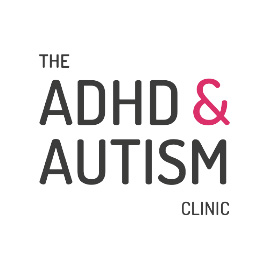Are you an employer?
This page is primarily intended as a guide to those with symptoms of ADHD who are in employment or hoping to start employment soon. However, the information below may also be helpful to employers to highlight how you can best support employees with ADHD. It is important to remember that any information your employee shares with you about their ADHD remains confidential and that any documents pertaining to their diagnosis are secure.
ADHD in the workplace
The vast majority of people with ADHD are able to lead productive, vibrant and fulfilling working lives. Many people with ADHD find that some of their symptoms add to, rather than detract from, their ability to work rapidly and creatively. However, some people with symptoms of ADHD will need increased support or adjustments to the work environment in order to reach their natural working potential. This may, for example, be due to difficulties with maintaining attention, coping with restlessness, or keeping organised.
There are two main routes to increased assistance at work:
- An occupational health assessment organised by your employer to assess what reasonable adjustments you may need
- An application to the Access to Work scheme under the Department of Work and Pensions (DWP)
Examples of ‘reasonable adjustments’
Employers must make reasonable adjustments to make sure workers with physical, mental health, or neurodevelopmental conditions are not disadvantaged in the workplace.
These adjustments must be reasonable and shouldn’t cause undue hardship to the employer (for example by being extremely expensive or very burdensome).
The way in which ADHD affects an individual is particular to them and so reasonable adjustments can only be assessed on a case-by-case basis. Some examples of reasonable adjustments that employees with ADHD may find helpful are below. Many of the examples will not apply to everyone with ADHD, and the list is by no means exhaustive.
Adjustments for employees struggling with restlessness
- Space to move if needed, for example, an open-plan space to work in or an adjustable rising/standing desk.
- Regular short breaks throughout the day
- Distraction/fidget accessories
Adjustments for employees struggling with inattention
- Again, regular short breaks throughout the day are likely to be helpful
- Avoidance of multitasking or multiple deadlines
- Short, clear action points
- Summary notes from meetings
- Provision of private spaces and/or noise-cancelling headphones
- Provision of dictation software
- Optimising the sensory environment
- Flexible home working where possible
Adjustments for employees struggling with organisation
- Organisation software where appropriate (such as Todoist or MindView)
- Provision of physical organisation tools (such as wall planners and diaries)
- Automated processes for reminders of appointments and deadlines where possible
- Extra support and supervision to break work into manageable tasks and to prioritise deadlines.
What is the Access to Work scheme?
The Access to Work scheme is a Government initiative to ensure that workers with a disability are not unfairly disadvantaged. It provides financial support so that employees are able to work productively and safely. It does not cover reasonable adjustments, which are the responsibility of your employer.
Following an assessment which may include viewing your workplace, the scheme will decide whether you meet the criteria to receive a grant under the scheme, how much this will be and what the money should be used for. Access to Work will pay for the majority of costs after the first £1,000. If you apply in the first six weeks of a job, any items purchased belong to you and not your employer.
The support you get will depend on your needs but may include the following:
- A grant to help pay for practical support with your work
- Support with managing your mental health at work
- Money to pay for communication support at job interviews
- A support worker or job coach to help you in your workplace
- A tailored plan to help you get or stay in work
How do I know whether I would meet the criteria for the scheme?
In order to apply for the Access to Work scheme, you must:
- Have a physical or mental health condition that meets the threshold to be considered a disability and affects your ability to work
- Be 16 or over
- Be in paid work (or are about to start in the next 12 weeks). This includes self-employment
ADHD can be considered a disability under the Equality Act 2010 if it has a ‘substantial’ and ‘long-term’ negative effect on your ability to do normal daily activities. Long-term generally means for longer than a year, and ‘substantial’ refers to a difficulty which is more than minor or trivial, for example, if you are unable to sit at a desk to work without several breaks due to restlessness, or if you need significant support to remember appointments or to meet deadlines.
The scheme is not means tested, and it does not matter how much you earn or could earn at work.
What is an ‘ADHD work coach’?
ADHD coaching has become more prominent in recent years and is a practical intervention designed to specifically target the core difficulties of ADHD, which may impact on work or study. This can include planning, prioritising, time management, organisation, and goal setting. Regular sessions with an ADHD work coach may be something an Access to Work grant can be used for.

